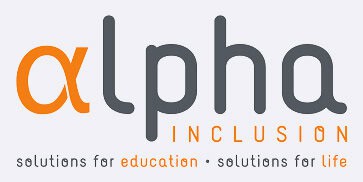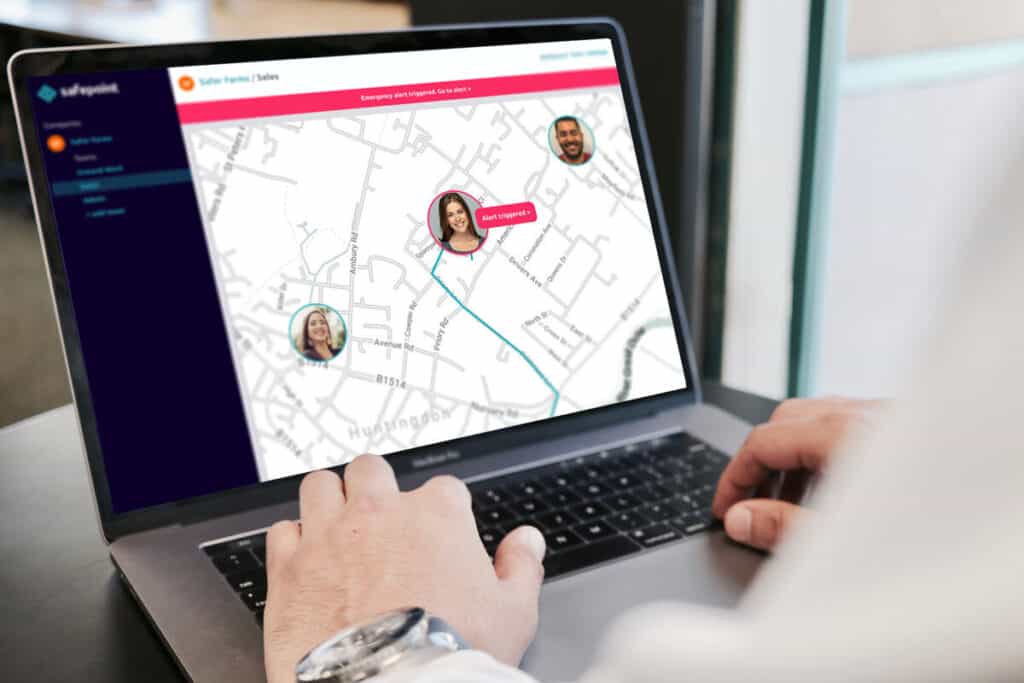
Alpha Inclusion and Communication is a social enterprise that works primarily with young people, families and schools. They specialise in supporting neurodivergent individuals; specifically those with Autism, Asperger’s syndrome and social communication difficulties. Recently they have expanded to work with businesses on effectively recruiting, managing and mentoring the neurodivergent adults in their workforce.
For the organisations that bring in Alpha Inclusion (such as a school or a council), as well as for those being supported, success is measured by a greater sense of inclusion and increased levels of confidence and acceptance.

Alpha Inclusion and Communication often work on a one-to-one basis with young people in their homes. Any work in people’s homes has an inherently higher risk than in a public setting, particularly when working alone. For a company like Alpha Inclusion, they found that home environments are also less predictable and more prone to change.
Recently, according to Director and Specialist Teacher Amy Eleftheriades, the team have been receiving more ‘complex’ cases. As a diligent education support company, Alpha Inclusion sends out referral forms and make detailed risk assessments. No matter how careful they are, however, they found that there can always be surprises –particularly around anxious young people.
As a manager, Amy has always been confident that her staff are competent, well trained and have the best knowledge available to them. However, she was understandably worried about her staff working alone, without any means of signalling for emergency help.
Despite her concerns, Amy didn’t want to check in with her staff while they were in the middle of a particularly positive session. She explains that often, if a session overruns, it is normally a sign that her staff are making progress, and it would be detrimental to interrupt that with a phone call. She considered doubling-up her staff when they’re on visits, but this can be imposing and off-putting –particularly when working with young people who might struggle socialising in groups.

After reaching out to Safepoint, Alpha Inclusion were set up with a self-managed Safepoint package for all their lone working staff. This is entirely app-based, with no need for extra equipment.
When Amy’s staff are visiting clients, they create tasks on the Safepoint app. As soon as they start, their location and safety status is shared in real-time with their manager. Through the Safepoint portal and SMS alerts, managers can see if a task has overrun, or if a staff member is in trouble.
Sometimes a session may go on longer than expected, and the task will overrun. In those cases, their manager will be notified by text and they can give a quick call to check if everything’s okay. This not only provides better protection but also it reminds the staff member that they are being looked out for. When we spoke to Amy, she also said that having Safepoint, and getting those check-in calls, makes her staff more safety-aware.
“Using Safepoint reminds the staff that they are working in a complex environment, and it highlights the seriousness of that situation.”

The biggest concern for Alpha Inclusion early on was whether her staff would use a lone working tool. Many of their staff would not describe themselves as ‘tech-savvy’ and would resist anything that felt like a chore, or a ‘snooping’ tool. However, after running through a demo, and then starting a trial, Amy and her team were very happy with how Safepoint could work for them.
“At first I worried that Safepoint would only work for big companies, but it worked great for our little team”
Reflecting on their experience with Safepoint, Amy thinks that the solution has lessened the staff’s anxiety when working in uncertain scenarios, and has helped with staff wellbeing.
What’s more, as someone who feels that her staff’s safety is sacred, with Safepoint, Amy feels more comfortable taking on more complicated cases. This has meant helping a greater number of young people where other organisations may not.
“We’ve said ‘yes’ to more work that previously we wouldn’t have felt comfortable doing, and the impact on those young people with more complex needs, who may have been turned away by other groups, has been really positive.”
Award-winning safety management tools and a fully accredited response team.